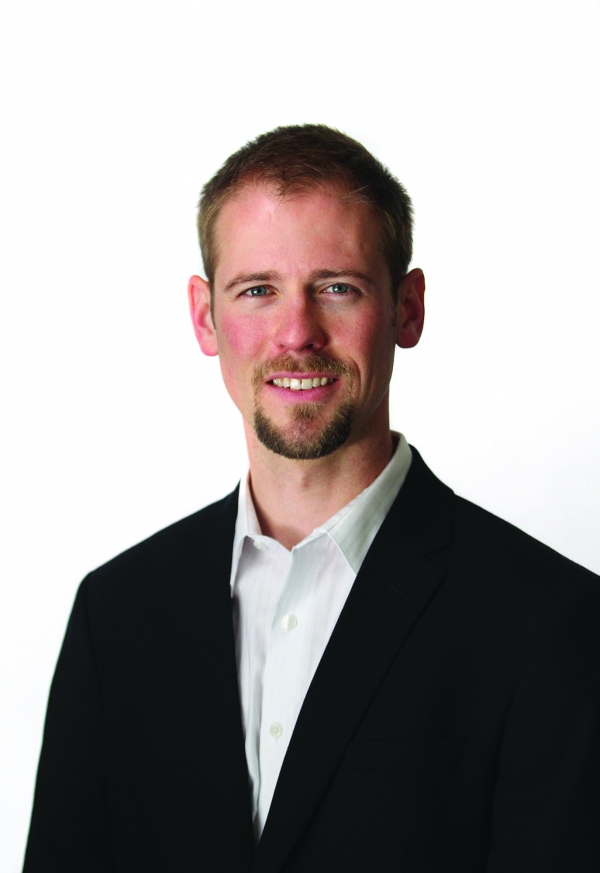It's hard to disagree with Cory Wolbach when he talks about the things he wants to achieve if elected to the City Council: restoring civility, encouraging diversity and making residents feel more included.
He wants to focus on solving the city's traffic and parking problems and improving the planning process, with an eye toward better aesthetics for new buildings. He wants to explore adding housing that's truly affordable to the general populace, but only after making the types of transportation improvements that would support new residential space.
When it comes to issues, many of his views are consistent with the "residentialist" critics of the current City Council: slow down commercial development, limit planned-community zoned projects, and do a better job involving residents in determining the city's future. His views are also in many ways consistent with those of the current council, which is now in the early stages of setting up a new Transportation Management Association to reduce downtown car traffic (he considers this the council's best decision) and which has placed a moratorium on the city's contentious planned-community zoning.
The youngest in the 12-candidate race, Wolbach speaks deliberately and diplomatically, as if he's trying to personify the civility he wants to bring to the City Hall dais. He knows the town, having grown up in the Palo Verde neighborhood.
But while other candidates in the race became steeped in residential issues before getting into politics, Wolbach took the opposite route. He worked in private security and then decided to become more involved in the political process. He graduated from University of California, San Diego, with degrees in political science and international relations. He is on the board of the Peninsula Democratic Coalition and is president of the Peninsula Young Democrats. He also knows most of the players in the political establishment, given his job as a legislative aide to state Sen. Jerry Hill, from which he is taking a leave to pursue the campaign. The job has given him the opportunity to work with the local council and Board of Education and opened his eyes to "what the city is doing well and what the city needs to do even better," Wolbach told the Weekly.
His decision to enter the council race was sparked by last year's debate of Measure D, which culminated in the voters overturning a council-approved housing development on Maybell Avenue. Wolbach didn't like what he was seeing.
"It hurts to see the very painful discussion people were having about issues that are important, very important, but that we should be able to have a civil discourse about," Wolbach said.
If others see the election as a choice between two visions for the city, he sees it as an opportunity to reconcile the different factions in the virulent Measure D debate.
Among other issues that concern Wolbach, housing is high on the list. In recent years, Palo Alto has gone from "expensive to just inaccessible."
"It might never be possible for Palo Alto to be an affordable place to live again, but I think there are policy options we haven't fully explored," Wolbach said. "And we haven't had the robust discussion that I think is necessary before we write off the possibility of being a diverse Palo Alto."
The city, he said, should make it easier for people to add second units on their lots. Wolbach said his own neighborhood has many large properties with single homes occupied by empty nesters. Palo Alto should make it easier to add a second unit that can house an extended-family member or a caretaker, he said.
On the broader question of growth, Wolbach said he favors giving each neighborhood a greater say in its future through a creation of "specific area plans." His proposal includes working groups made up of a council member, a planning commissioner and members of a particular neighborhood collaborating on a long-term vision. This is not unlike the process the city used a decade ago to create its two South of Forest Area (SOFA) plans, though Wolbach proposes it as the norm rather than the exception.
He also advocates moving more aggressively on transportation, which he says is a prerequisite to new housing. Though the council is already expanding Palo Alto's small city-shuttle program, which consists of three routes, Wolbach said the current plan doesn't go far enough.
"They're talking about baby-step changes," Wolbach said. "I fear it will be unsuccessful and then people will be saying for years that 'We've tried a shuttle system and it was a failure.' I think we should do it seriously, almost radically, and do it right. Take the time to do it right. Bring all stakeholders to the table -- the Santa Clara Valley Transportation Authority (VTA), Stanford, VMWare, Palantir, Google, the downtown business associations, and say: 'Bring your innovative ideas. Bring your checkbooks. Let's figure this out.'"
When asked about recent allegations by the Santa Clara County Grand Jury about the council's lack of transparency in its 2012 negotiations with developer John Arrillaga, Wolbach said he believes the council is "on the right track" when it comes to addressing these criticisms. He stresses that he doesn't want to point fingers and call people names.
"Rather than trying to blame everyone, I want to say, 'Let's be mature, move on and figure out how we can improve our process to make sure everyone in the community is actually heard and everyone who wants to be involved is actually involved,'" Wolbach said. "I don't think we need to have a Truth and Reconciliation Commission to move forward."
• To read about where Cory Wolbach stands on issues including development, transportation and housing, see the Weekly's PDF edition.



Comments